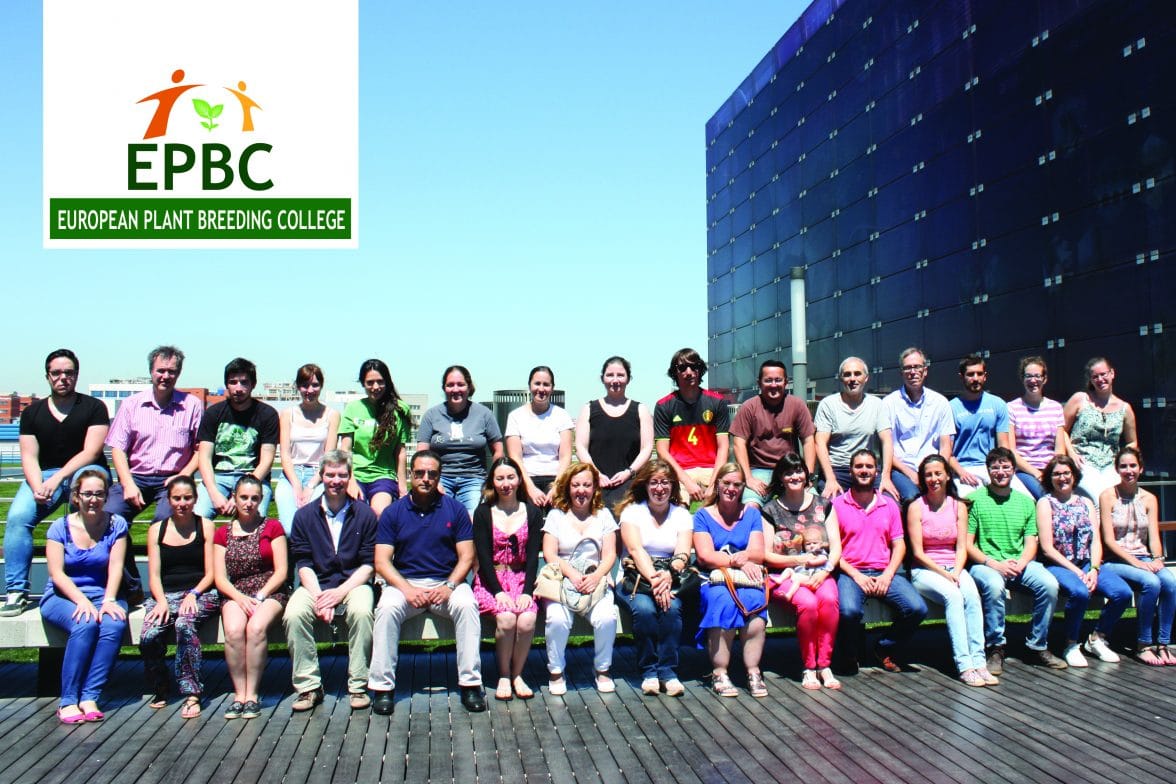Five schools have come together to form the European Plant Breeding College to train new breeding project leaders.
The seed sector in Europe is facing major challenges in the coming years, in particular the impact of climate change and environmental stresses on agricultural production, a growing world population, the increasing importance of European food production, and the need for a more sustainable agricultural system. As a consequence, the European seed sector needs to develop new high-yielding plant varieties and new seed innovations.
To tackle these challenges, the European seed sector will require well-trained breeding project leaders with in-depth knowledge of both plant breeding techniques and biotechnological techniques. These project leaders are expected to successfully manage the work of field breeders and biotech specialists and to facilitate their collaboration. Their project management experience and international exposure enables them to understand and follow international developments and to see the bigger picture. These profiles are currently scarce on the job market and are increasingly being asked for. In a nutshell, there is a strong need for this profile of human resources for the development of the European seed sector.
Following discussions with their industrial partners that confirmed this diagnosis, five European Higher Education Institutions decided to join forces to develop the European Plant Breeding College (EPBC): Ghent University, Ege University, Polytechnic University of Valencia, Swedish University of Agricultural Science (SLU) and Polytechnic Institute LaSalle Beauvais-ESITPA.
LaSalle’s master’s degree programme is focused on crop improvement and the creation of new crop varieties. The aim of this programme is to train plant breeders so as to manage the scientific and technical relationships between biotechnology, agronomy, plant biology, genetics, breeding, regulatory issues and markets. This programme was designed in partnership with seed companies and the food industry, and with Ghent University in Belgium.
SLU offers a two-year international master’s programme in plant biology, given in collaboration with Uppsala University and Stockholm University. Plant breeding is an important part of the master’s programme and provides strong connections to research in plant genetics, breeding, plant pathology, plant-microbe interactions and plant development.
Ege University has a multidisciplinary two-year master’s programme on Seed Science and Technology consisting of two disciplines; variety development (plant breeding) and seed production and technology. The master programme has a good relationship with seed companies in Turkey. The Turkish Breeder Sub-union is a partner of the master programme supporting the EPBC.
UPV offers a two-year official interuniversity master’s programme (Universitat Politècnica de València, Universitat Politècnica de Catalunya, Universidad Politécnica de Madrid) in plant breeding with a high proportion of practical sessions in the curriculum and hosts a considerable number of students from developing countries (mostly South America).
Ghent University was one of the first universities worldwide to design transgenic plants. Ever since, Ghent University became a world leader in research in the domain of molecular biotechnology. Since the early eighties at least 15 spin-off companies have been created in the domain of crop design, crop protection, and disease prevention based on molecular biotechnology.
Based on the complementarity of the five partners and their programmes, the objectives of the EPBC are:
- Share knowledge and experience for the benefit of their students
- Further improve the academic quality of their plant breeding master’s programmes
- Further improve the employability of their alumni
- Create a European dialogue with the seed sector on human resource policy
- Increase the excellence, international visibility and integration among European plant breeding education programmes
- Increase the number of joint projects among EPBC participants and the integration of their plant breeding master’s programmes
The two-year project started on 1 September 2015 within the framework of an Erasmus+ strategic partnership and is co-funded by the European Union.
To achieve its objectives, the EPBC has been implementing a number of actions, such as:
- Providing online courses and webinars
- Organising intensive study programmes at each of the five universities
- Enabling students to spend one month at one of the five partner universities to carry out research for their master’s thesis
- Organising exchanges with the seed industry in each of the five countries
- Creating an internship network between the partner universities and their industrial/research partners
The first Intensive Study Programme (ISP) of the EPBC will be organised from 10 to 21 October 2016 at Polytechnic Institute LaSalle Beauvais-ESITPA. During this period, students from LaSalle and the EPBC partner universities will be given the opportunity to meet and immerse themselves in a dense two-week programme on project management in plant breeding. They will also go to Angers for a two-day seminar at GEVES.
One major objective of the ISP is to set up the groups for the upcoming pilot case — a real-time case study that enables the students to work in international groups on real working environment cases: the students have to design a breeding programme that is relevant for breeding companies and they are assisted by their professors and seed industry representatives.
Finally, the ISP will end with a multiplier event on 20/21 October 2016 to engage in a dialogue with the seed industry on the challenges for higher education training programmes in the field of plant breeding, in order to work together on training tomorrow’s plant breeding project leaders.
Save the date of the Multiplier Event in France to discuss the future of higher education training in plant breeding with the seed industry on 20/21 October 2016, check out the programme at http://www.epbc.eu/isp/ and register at epbc@lasalle-beauvais.fr.
The calendar of upcoming and archived events as well as more detailed information about the EPBC can be found on www.epbc.eu.
For info on specific universities:
Swedish University of Agricultural Science: http://www.slu.se/en/education/masters-programmes/plant-biology/
Ege University: http://www.seedscience.ege.edu.tr
Polytechnic University of Valencia: https://www.upv.es/titulaciones/MUMGV/indexi.html
Ghent University: http://www.bioengineering.ugent.be












